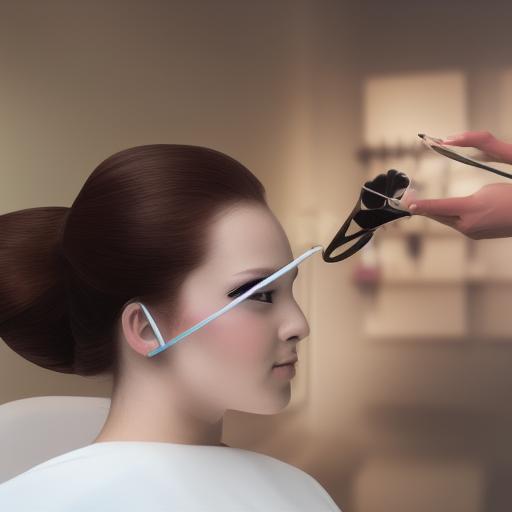Starting a salon is exciting! From the stylish decor to the creative freedom, it’s a dream many aspire to. But before you start booking appointments and styling those luscious locks, you need to make a crucial decision: choosing the right legal structure for your business. This article will delve deep into the differences between an LLC (Limited Liability Company) and a sole proprietorship, helping you determine which is the best fit for your salon.
Understanding the Basics: LLC vs. Sole Proprietorship
Let’s lay the groundwork. Both LLCs and sole proprietorships are popular business structures, especially for small businesses like salons, but they offer vastly different levels of liability protection and administrative complexity.
Sole Proprietorship: The Simplest Structure
A sole proprietorship is the simplest form of business ownership. It’s essentially a business that’s directly owned and run by one person, with no legal distinction between the owner and the business. You, the owner, are personally liable for all business debts and obligations.
Pros:
- Easy and inexpensive to set up: Minimal paperwork and fees are involved.
- Simple taxation: Profits and losses are reported on your personal income tax return (Schedule C).
- Complete control: You have total decision-making authority.
Cons:
- Unlimited personal liability: Your personal assets (home, car, savings) are at risk if the business incurs debt or faces lawsuits. A single unhappy client could potentially wipe out your personal finances.
- Limited fundraising options: Securing loans or attracting investors can be challenging.
- Business lifespan tied to owner: The business dissolves if the owner dies or retires.
LLC: A Shield of Protection
An LLC (Limited Liability Company) offers a middle ground between the simplicity of a sole proprietorship and the complexity of a corporation. It separates the business’s liabilities from the owner’s personal assets, offering a crucial layer of protection.
Pros:
- Limited liability protection: Your personal assets are generally protected from business debts and lawsuits. This is the biggest advantage of an LLC.
- Pass-through taxation: Profits and losses are passed through to the owner’s personal income tax return, avoiding double taxation (like corporations face).
- Flexibility in management: You can choose to manage the LLC yourself or appoint a manager.
- Credibility and professionalism: An LLC often presents a more professional image to clients and potential investors.
Cons:
- More complex to set up: Requires registration with the state and adherence to specific compliance requirements.
- Higher initial and ongoing costs: Filing fees, annual reports, and potential compliance costs are higher than for a sole proprietorship.
- More paperwork and administrative burden: Maintaining records and filing annual reports requires more time and effort.
Which Structure Suits Your Salon? A Detailed Comparison
Let’s analyze the factors that should guide your decision:
1. Liability Concerns: The Biggest Differentiator
For a salon, liability is a significant concern. Accidents, injuries (e.g., chemical burns, allergic reactions), and dissatisfied clients leading to lawsuits are all possibilities. A sole proprietorship leaves you personally exposed to these risks. An LLC provides a crucial buffer, shielding your personal assets from business-related claims. This protection alone makes an LLC a compelling option for most salons.
2. Taxation: Simplicity vs. Complexity
Both structures offer pass-through taxation, meaning profits and losses are reported on your personal income tax return. However, the paperwork and complexity differ. A sole proprietorship is simpler to file, while an LLC requires more detailed record-keeping and potentially specialized tax advice.
3. Funding and Growth: Planning for the Future
If you plan to expand your salon, attract investors, or seek loans, an LLC can be advantageous. LLCs are generally perceived as more stable and professional entities, making them more attractive to lenders and investors. A sole proprietorship may struggle to secure significant funding.
4. Administrative Burden: Time and Resources
An LLC requires more administrative overhead, including annual reports, compliance filings, and potentially more detailed record-keeping. A sole proprietorship is much simpler to manage, but remember that this simplicity comes at the cost of liability protection.
5. Long-Term Vision: Succession Planning
Consider your long-term plans. A sole proprietorship’s lifespan is tied to the owner. An LLC can continue operating even if the owner dies or retires, offering smoother succession planning.
Examples and Case Studies
Scenario 1: The Solo Stylist
A stylist working from home with minimal equipment and few clients might find a sole proprietorship sufficient. The risk of lawsuits is relatively low, and the simplicity outweighs the need for LLC protection.
Scenario 2: The Upscale Salon with Multiple Employees
A large salon with multiple stylists, receptionists, and potentially a manager faces significant liability risks. Product liability, employee injury, and client disputes are all real possibilities. In this scenario, an LLC’s liability protection is crucial.
Scenario 3: The Salon Owner Planning for Expansion
An owner aiming to expand their salon by opening another location or franchising would benefit from the credibility and funding opportunities offered by an LLC. The ability to attract investors and secure larger loans becomes much easier with an LLC structure.
Choosing the Right Structure for Your Salon: A Checklist
Use this checklist to guide your decision:
- Liability Risk Assessment: High risk (multiple employees, high-value products) points towards an LLC. Low risk (solo stylist working from home) might favor a sole proprietorship.
- Funding Needs: Need for loans or investments points towards an LLC.
- Administrative Capacity: Comfort level with paperwork and compliance dictates whether you can handle the additional responsibilities of an LLC.
- Long-term Goals: Plans for expansion or succession planning favor an LLC.
Setting Up Your Chosen Structure: A Step-by-Step Guide
This section provides a basic overview. Seek professional legal and financial advice for specific guidance based on your location and circumstances.
Setting Up a Sole Proprietorship:
- Choose a business name: Register your business name if you’re using a name different from your own.
- Obtain necessary licenses and permits: Check local and state regulations for requirements.
- Open a business bank account: Keep your personal and business finances separate.
- File your taxes: Report your business income and expenses on your personal tax return (Schedule C).
Setting Up an LLC:
- Choose a business name: The name must comply with state regulations.
- Appoint a registered agent: This individual or entity receives legal and official documents on behalf of the LLC.
- File the articles of organization: This document is filed with the state to officially establish the LLC.
- Create an operating agreement: This internal document outlines the LLC’s management, operations, and ownership structure.
- Obtain necessary licenses and permits: Requirements vary by location and industry.
- Open a business bank account: Maintain clear separation between personal and business finances.
- File your taxes: Report your business income and expenses on your personal tax return (using the appropriate forms for an LLC).
Learn Business: Your Partner in Business Success
Navigating the complexities of business setup and management can be challenging. That’s where Learn Business (https://learn-business.org) comes in. They offer comprehensive resources, including guides, templates, and expert advice, specifically tailored to help entrepreneurs like you. Their resources on LLC formation, operating agreements, and tax compliance are invaluable for salon owners looking to establish a solid legal foundation. They provide templates for crucial documents, ensuring your compliance and saving you time and money. Learn Business empowers you to focus on your passion – styling hair – while they help you manage the administrative side of your business efficiently and effectively.
Conclusion: Make the Right Choice for Your Salon’s Future
Choosing the right legal structure is a crucial decision for your salon’s success. While a sole proprietorship offers simplicity, an LLC provides essential liability protection, paving the way for growth and long-term stability. Carefully consider the factors outlined in this article, weigh the pros and cons, and seek professional guidance to make an informed decision that aligns with your salon’s unique needs and aspirations. Remember, the right legal structure can be the foundation for your salon’s journey to success. Don’t hesitate to utilize the resources available from Learn Business to help you navigate this process effectively.


Leave a Reply